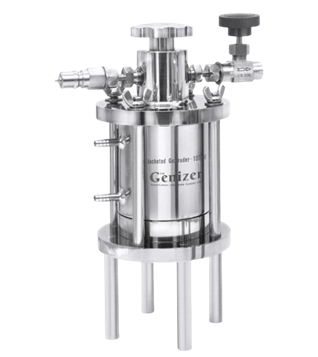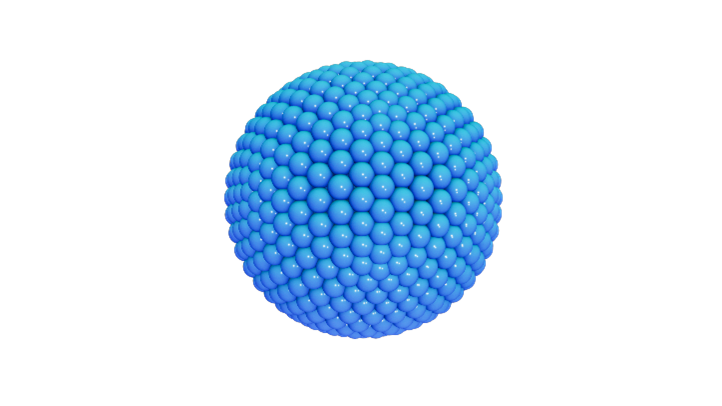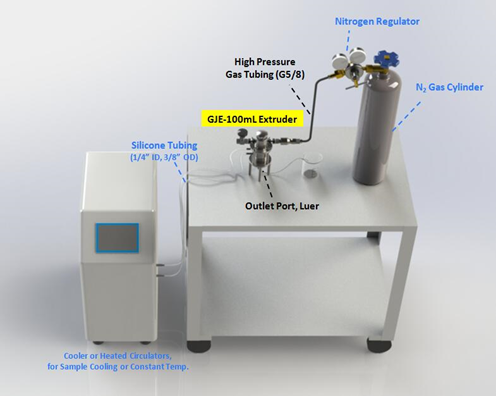The Genizer Jacketed Liposome Extruder uses a nitrogen gas cylinder to force a drug, protein or gene liposome suspension via a track-etched membrane with a predetermined pore size; generally, 5–10 passes are enough to create a sample with consistent liposome size. The Genizer Jacketed Liposome Extruders are intended to produce uniform unilamellar liposomes and Lipopolyplex with minimal dead volume.

Genizer GJE-100mL, Jacketed Liposome Extruder. Image Credit: Genizer LLC

Liposome particle with phospholipid molecules. Image credits: Genizer LLC
The operation procedure is easy and simple. Users can set the big pore support disc in the filter support base first, followed by the laser disc (smooth side up), one drain disc, then the liposome membrane (shiny side up).
A high-pressure nitrogen tubing comes as standard. This then needs to be added to the gas cylinder’s regulator to complete the GJE-100mL.
To generate the pressure, the user needs to simply load the thermal barrel with the sample, then switch on the regulator. To obtain nano-scale particle sizes, the sample needs to pass through the track-etched nanopore membrane.
Features
- The capacity of the extruder barrel: 100 mL
- Filter diameter: 25 mm
- Spares: O-rings, collection silicone tubing
- Material: 316L stainless steel, NBR or Viton
- Cooling: jacketed thermo barrel
- Additional features: Large pore support screen, laser micro pore disc, high pressure nitrogen tubing G5/8

Genizer Jacketed Liposome Extrusion System. Image Credit: Genizer LLC